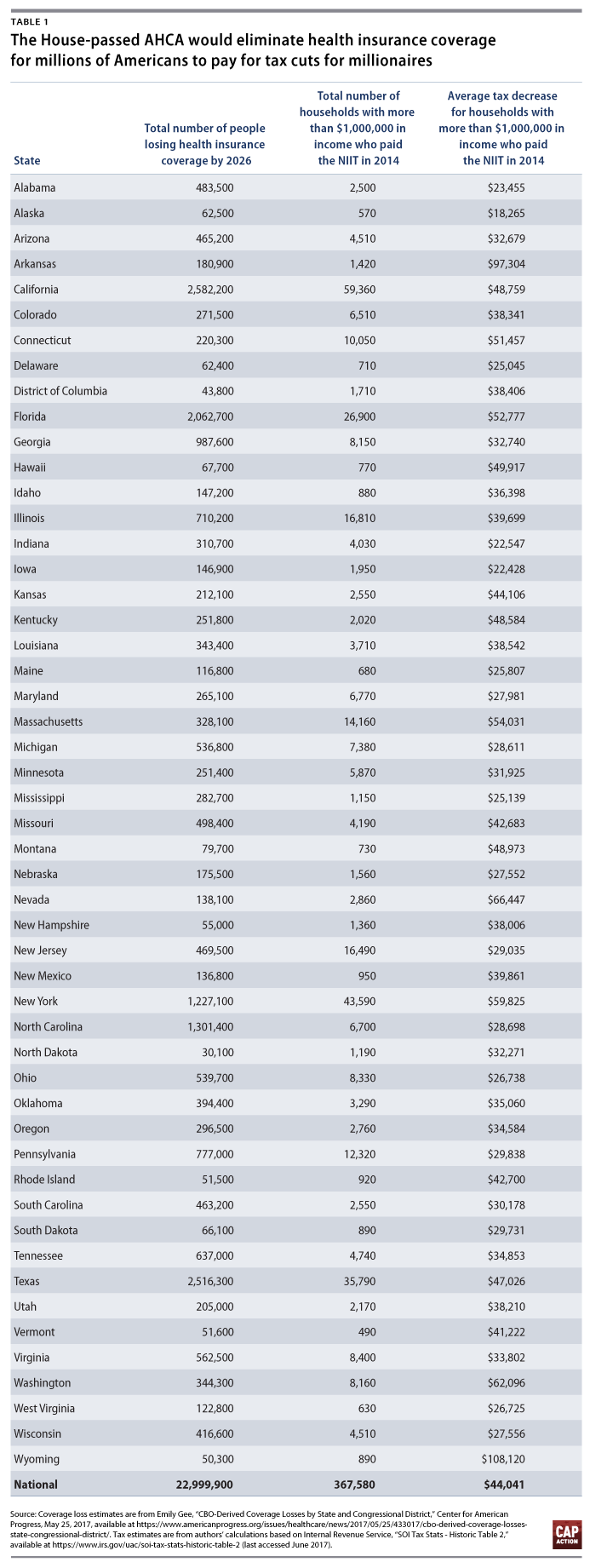Republican health care plans, including the House-passed American Health Care Act (AHCA), would repeal taxes on the wealthy, including the Net Investment Income Tax (NIIT)—a tax on combined capital gain, dividend, and interest income applicable to individuals making more than $200,000 or couples filing jointly making more than $250,000 in adjusted gross income. This tax cut is paid for by eliminating health insurance coverage for millions of low- and moderate-income Americans. Approximately 90 percent of the benefit of repealing this tax goes to the top 1 percent of households.
Below is a table that shows estimates of the average tax cut for households earning more than $1,000,000 in annual adjusted gross income by state if proposals to eliminate the NIIT succeed.
At the same time, the House-passed bill would cause 23 million people to lose coverage by 2026, according to the Congressional Budget Office (CBO). The estimates below apportion the CBO estimate by state.
Table 1 compares the tax cut for those earning more than $1,000,000 with the number of people in each state who will lose health insurance coverage if the House-passed AHCA becomes law.

Alex Rowell is a Research Associate with the Economic Policy team at the Center for American Progress Action Fund. Ryan Erickson is the Associate Director of Economic Campaigns for the Action Fund.